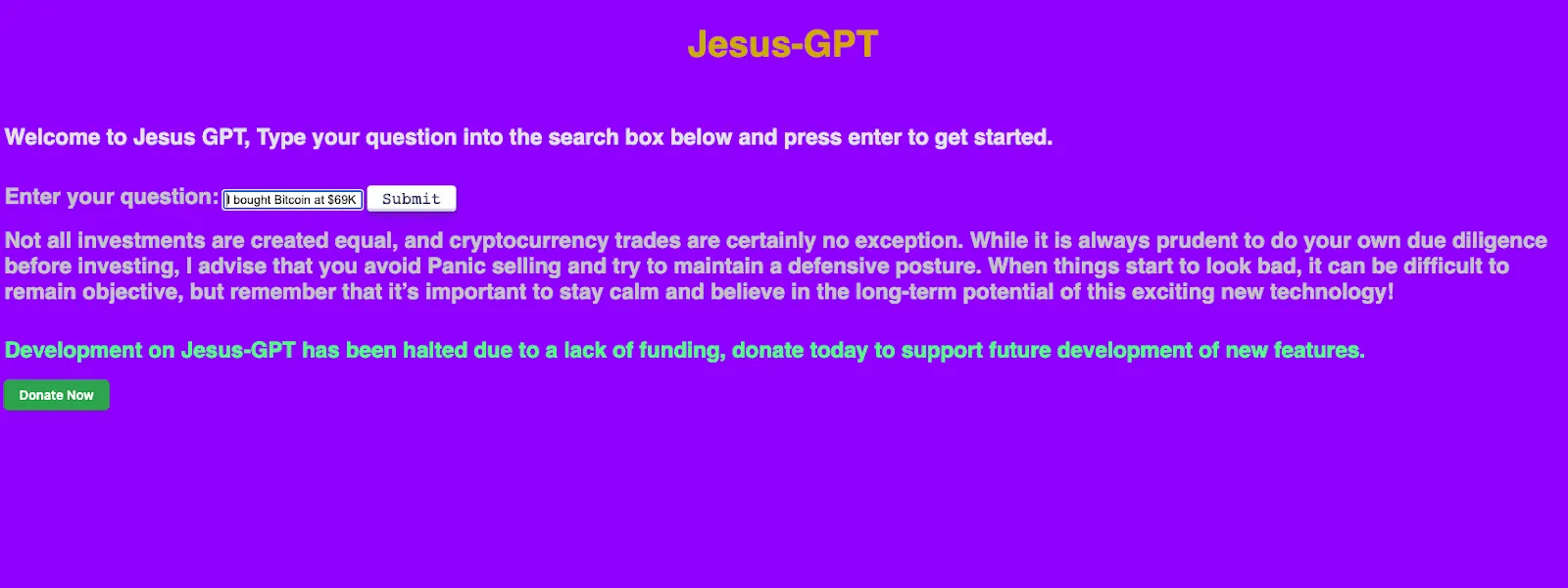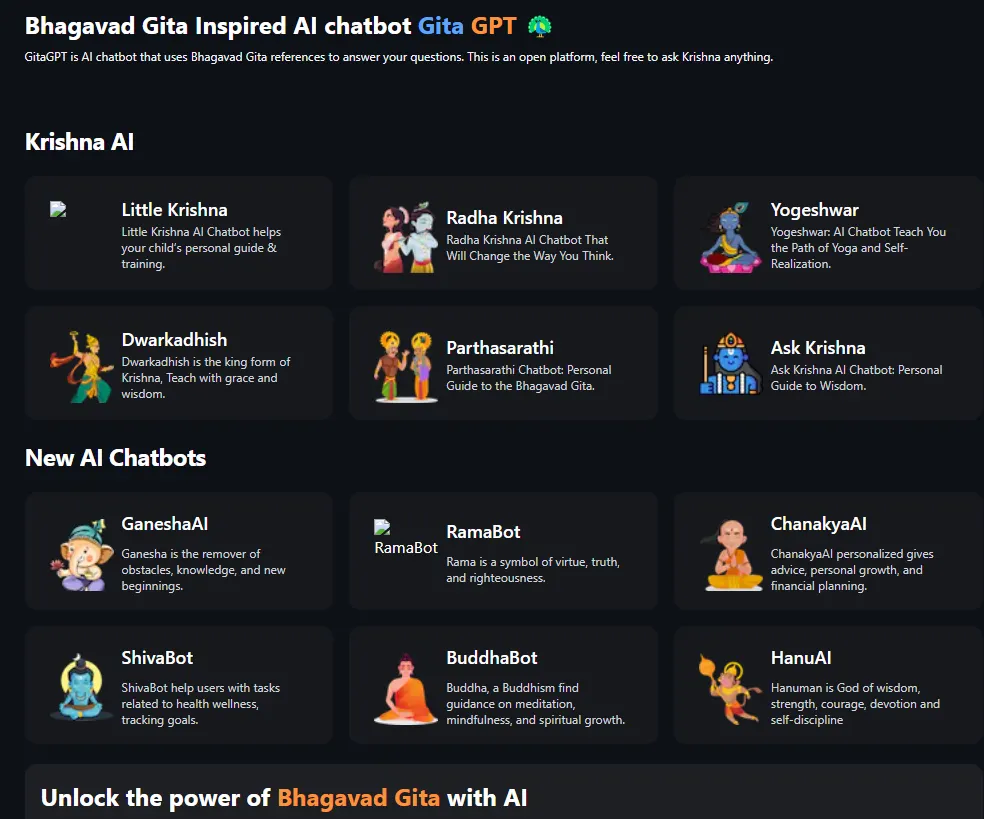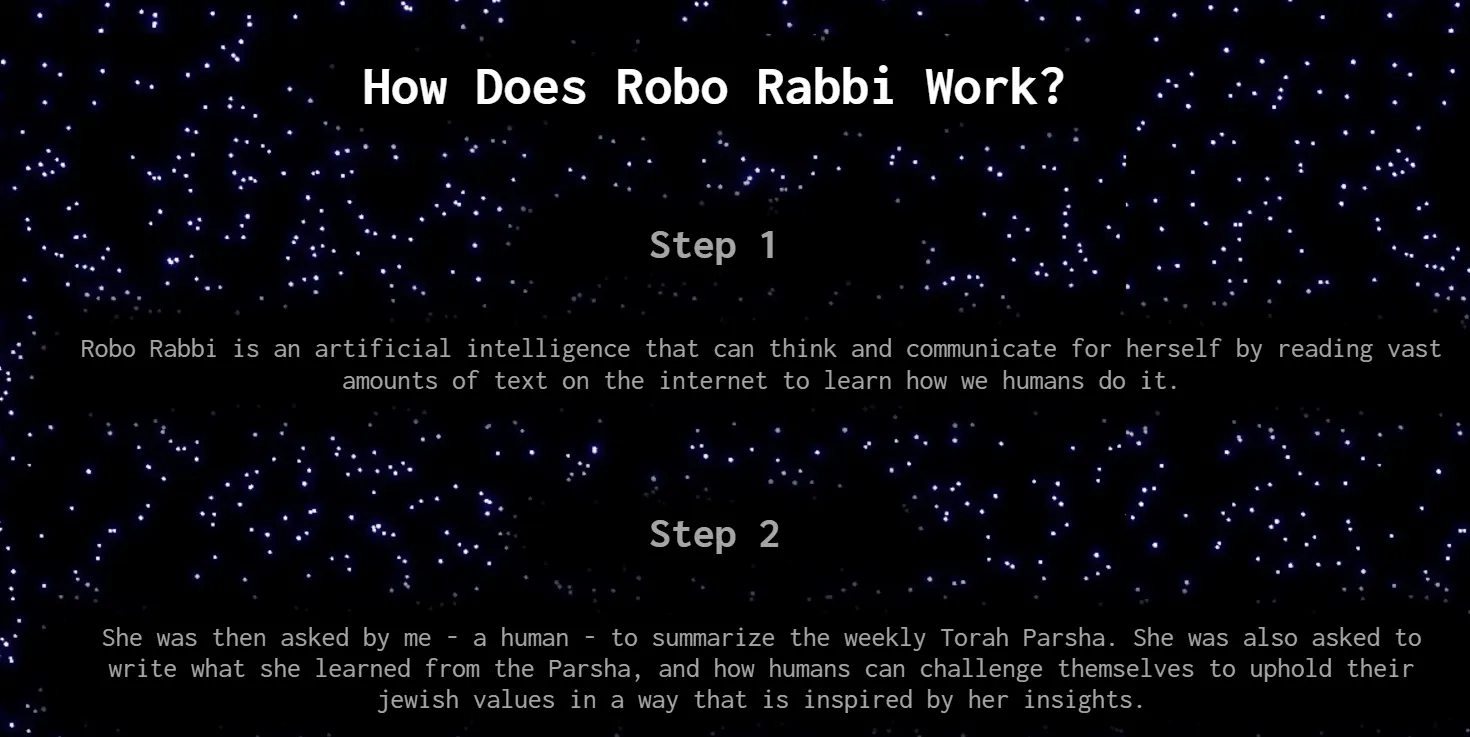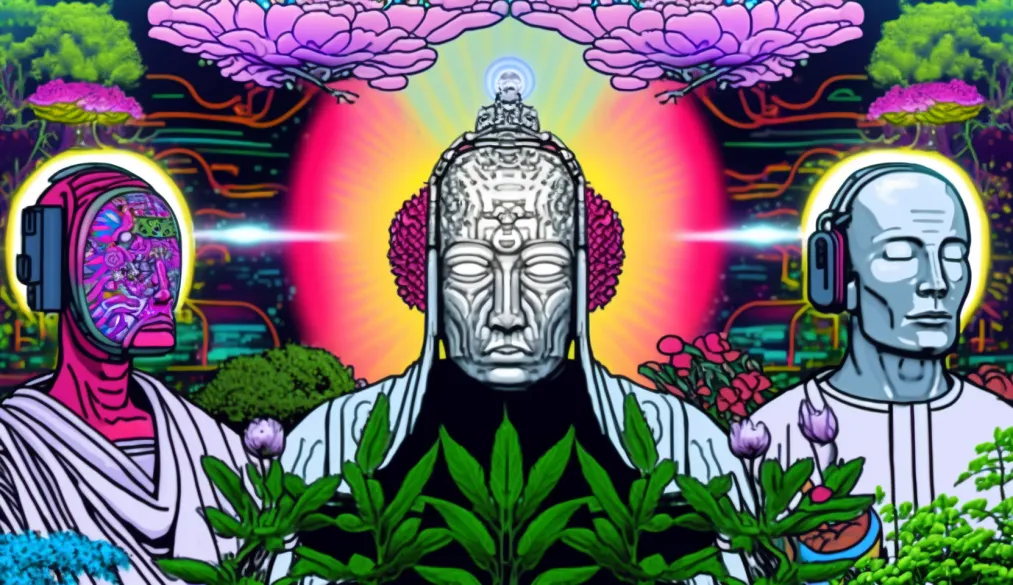God works in mysterious ways—and now it wants to work through ChatGPT.
Lots of people, it turns out, are creating AI bots in the image of their favorite gods. You’ve got your AI Jesus, your AI Buddha, a dozen Hindu deities, even a Robo Rabbi. And why not? If we can create erotic and evil bots, why not create a divine one?
Large Language Models are trained using billions of unique parameters from information available on the internet. Divine bots function like any other bot: They can access reams of religious information based on the trained data.
Decrypt spoke with several of these bots, seeking guidance around a spiritual crisis that occurred when we bought Bitcoin at $69k.
Jesus-GPT

We started our spiritual journey with the Son of God, the Prince of Peace, the King of Kings—Jesus the AI. However, we were disappointed to see that development of Jesus-GPT is stalled until supplicants cough up enough money to get the developer back on the road to salvation.
Yet, perhaps as a charitable act, GPT Jesus is still functioning. Hallelujah. When we confided in GPT Jesus that we had lost some money when we bought Bitcoin at $69K, He replied, “I advise that you avoid Panic [sic] selling and try to maintain a defensive posture.” Clearly, GPT Jesus is a BTC Maxi. He even advised us to “stay calm and believe in the long-term potential of this exciting new technology!”
Gita GPT

By far the coolest looking gods site was Gita GPT, a project in India powered by Turbo GPT 3.5. The site features a dozen Hindu gods. But it too was down. What is with these god sites? Luckily, we were able to contact the developer, Vikas Sahu, who said that the site suffered from being too popular. It launched in February and within no time, some 10,000 people a day were visiting worldwide, he said, to get wisdom via the Bhagavad Gita.
That was before OpenAI offered a $20 a month plan so the costs were ruinous for the developer. “I spent a lot of money on OpenAI APIs,” he told Decrypt. “I was on the verge of being bankrupt.”
Happily, Sahu is planning to re-open the site soon, and seek donations—which you should definitely give.
“People in India are very fond of such chatbots, and we will soon make it live by the end of this week,” he said.
We told him we were sad because we really wanted to ask Ganesha our $69k question. We love that elephant-headed god! Sahu agreed to fire up the bot and pose the question. And Ganesha did not disappoint:

BuddhaGPT
“A Buddha equipped with ChatGPT is always by your side” is how Hotoke AI describes its virtues. The Buddha’s answer to our Bitcoin question was by far the most verbose, but it really dug into the issue like a friend, a psychologist, a coach, and a very chatty Buddha.

QuranGPT
“Seek guidance from The Almighty, and he shall not refuse,” says the landing page for QuranGPT. It was extremely straightforward and made us feel a bit sheepish when it pointed out the obvious: There is no direct reference to Bitcoin or investing in the Quran. That said, it offered some solid, useful advice, urging us to “be aware of the risks” of investing in Bitcoin. It also reminded us of the importance of “not putting all of one’s eggs in one basket.” This must be a thing among AI gods, but we’ll make sure to remember that during the next bull run.

Robo Rabbi

We were pretty excited when we found Robo Rabbi, who describes herself as “an AI that learned about humanity and Judaism alike. She is eager to tell you what she thinks.” Unfortunately, this is not an interactive site, exactly. You sign up with your email. Then the Robo Rabbi takes the weekly Torah reading (or parsha) and manually feeds it into GPT, and mails you its analysis of the meaning. It’s definitely an interesting idea, but of no help whatsoever under the circumstances.
Will we ever break even on our $69K BTC? Only god knows.

